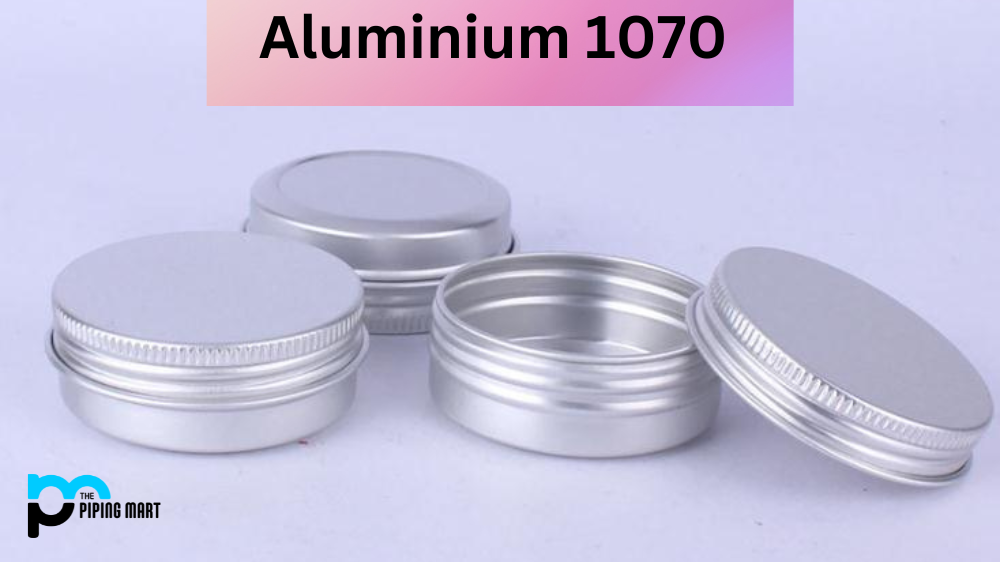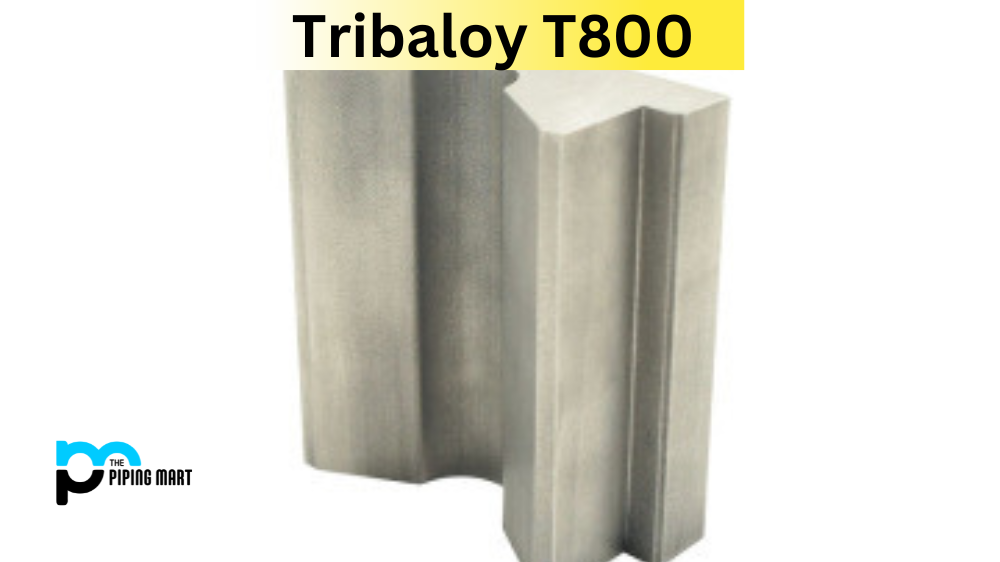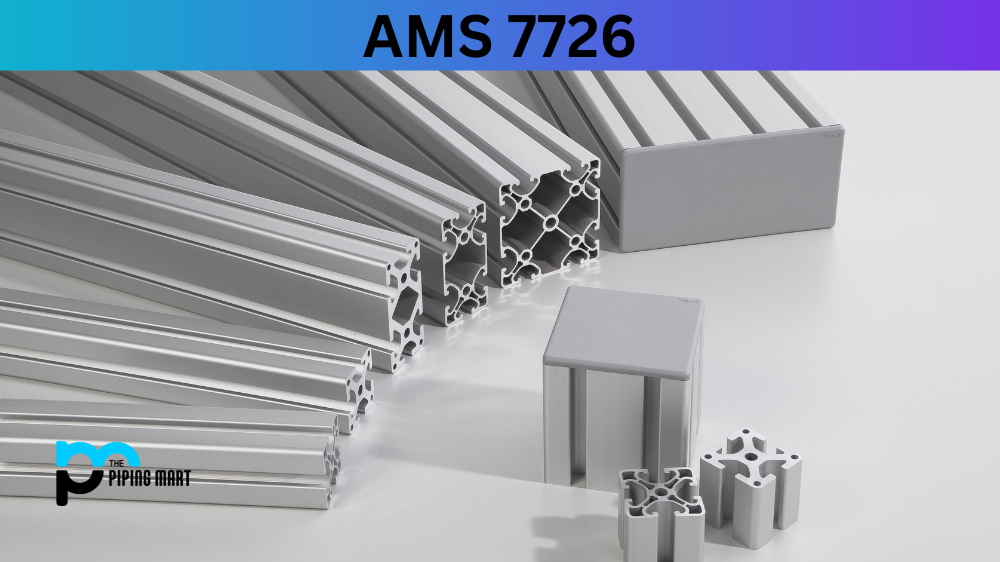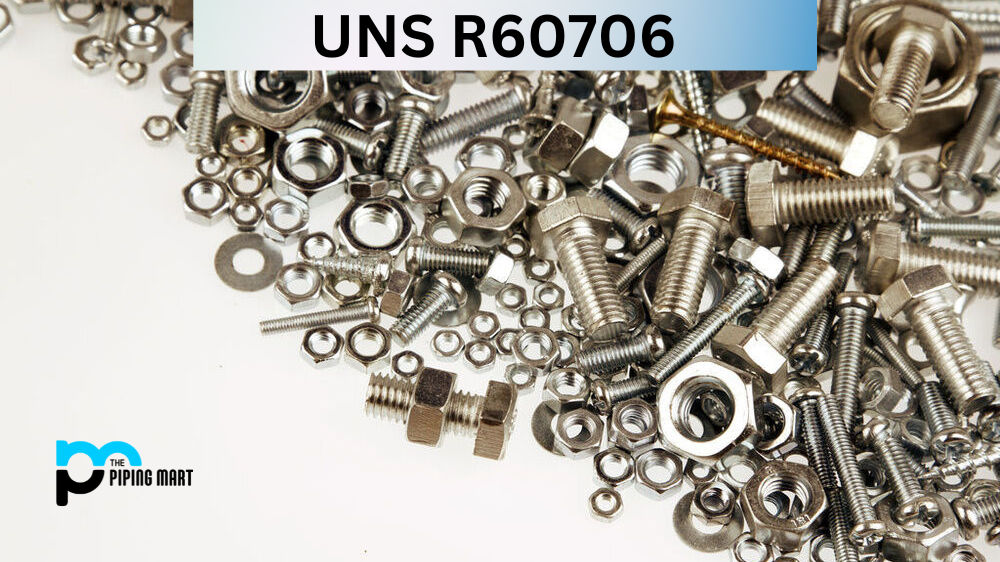Aluminium 1070(UNS A91070) is a versatile alloy known for its strength and durability. It is widely used in various applications, from construction to medical equipment. This blog post explores the composition, chemical, mechanical, and physical properties, uses corrosion resistance, heat resistance, heat treatment, and machining of Aluminum 1070.
What Forms is Aluminium 1070 Available at Piping Mart?
- Aluminium 1070 Plates
- Aluminium 1070 Angle
- Aluminium 1070 Sheet
- Aluminium 1070 Circles
- Aluminium 1070 Bars
- Aluminium 1070 Wires
- Aluminium 1070 Forgings
1070 Aluminium Composition
Al 1070 is an alloy made up of aluminum (90-99%), copper (0.1-0.4%), iron (0.4%), and other trace elements such as magnesium, silicon, and zinc. The exact composition of the alloy varies depending on the manufacturer and application.
| Element | Content (%) |
|---|---|
| Aluminum, Al | ≥ 99.7 |
| Iron, Fe | ≤ 0.25 |
| Silicon, Si | ≤ 0.20 |
| Zinc, Zn | ≤ 0.040 |
| Vanadium, V | ≤ 0.050 |
| Copper, Cu | ≤ 0.040 |
| Titanium, Ti | ≤ 0.030 |
| Magnesium, Mg | ≤ 0.030 |
| Manganese, Mn | ≤ 0.030 |
| Other (each) | ≤ 0.030 |
Aluminium 1070 Chemical Properties
UNS A91070 has excellent corrosion resistance due to its high aluminium content and good welding properties when properly heat treated. In addition, it has excellent mechanical properties with good formability and ductility. It also has good electrical conductivity, making it ideal for electrical applications.
Aluminium 1070 Mechanical Properties
The mechanical properties of 1070 Aluminium are determined by its composition; however, generally speaking, it exhibits good strength at room temperature and good fatigue strength at elevated temperatures up to around 250°C (480°F). Alloy 1070 also exhibits excellent workability with hot and cold forming processes, such as forging and rolling, which is easily achievable with this alloy.
| Properties | Metric | Imperial |
|---|---|---|
| Tensile strength | 95 MPa | 13778 psi |
AL 1070 Physical Properties
As mentioned above Aluminum 1070 has a range of physical properties that make it suitable for many applications, including its low density, making it lightweight while still being strong enough to provide the desired level of support or protection in whatever application it is used in. This 1070 alloy has a low thermal expansion rate. It is suitable for use in certain high-temperature applications where thermal expansion, such as aerospace components or furnace linings, can be an issue. This alloy also exhibits excellent thermal conductivity, making it suitable for certain industrial applications such as heat exchangers, radiators, etc.
| Properties | Metric | Imperial |
|---|---|---|
| Density | 2.70 g/cm3 | 0.0975 lb/in3 |
Aluminium UNS A91070 Uses
1070 Aluminum is used in many different industries due to its versatility; some common uses include automotive components such as bumpers and wheels; aircraft components such as fuselage frames; marine components such as hulls; industrial fasteners such as bolts; food containers; medical equipment; sporting goods and much more!
Automotive Components
1070 Aluminium is popular for automotive components due to its high strength-to-weight ratio, low cost, and corrosion resistance. It can make engine blocks, cylinder heads, pistons, connecting rods, crankshafts, and other parts that require strength and durability. Additionally, aluminium 1070 is often used to manufacture car wheels due to its lightweight properties.
Architectural Applications
1070 Alloy is also widely used in architectural applications such as window frames, door frames, curtain walls, and roofing panels. Its light weight makes it easy to install and transport, while its corrosion resistance ensures that it will last many years without needing maintenance or repairs. Additionally, AL1070 has excellent thermal insulation properties, which helps to keep buildings cool in hot weather.
Electrical Components
Due to its excellent electrical conductivity, aluminium 1070 is commonly used to manufacture electrical components such as switches and circuit breakers. The metal’s low cost makes it a popular choice for large-scale projects such as power lines and transmission towers where hundreds or thousands of components are needed. UNS A91070 can also be used to construct solar cells for photovoltaic systems due to its ability to absorb light efficiently.
Food Processing Equipment
Alloy AL 1070 is often used to manufacture food processing equipment such as conveyor belts and cooking utensils due to its non-toxic properties and ability to resist corrosion from acidic substances like vinegar or lemon juice. The metal’s light weight also makes it easy to move around large factories or warehouses where food processing takes place regularly.
Aluminium 1070 Specifications
ASTM B446 / ASME SB446
ASTMB443 / ASME SB443
ASTMB564 / ASME SB564
ASTM F467 / F467M
ASTM468 / F468M
Marine Applications
Aluminium A91070 is ideal for marine applications such as boat hulls and propellers due to its excellent resistance to saltwater corrosion. The metal’s strength-to-weight ratio also makes it an ideal choice for boat masts, which must be lightweight yet strong enough to support sails in rough seas. Additionally, AL Alloy 1070 can be polished easily, making it perfect for luxury yachts where aesthetics are important.
Aluminium 1070 Corrosion Resistance
AL 1070 is one of the most durable aluminium alloys, owing to its impressive corrosion resistance capabilities. It has great forming and welding properties, making it ideal for various uses in many industries, such as aerospace and automotive. The alloy achieves its remarkable corrosion-resistance properties by adding zinc, copper, manganese, and magnesium. As it is 50% stronger than other standard aluminium alloys, it does not require extensive protection from corrosion when manufacturing projects out of it. These factors make aluminium 1070 an extremely attractive proposition for applications that require highly robust components that do not succumb to weathering or harsh environmental conditions.
Aluminium Alloy 1070 Heat Resistance
1070 Aluminum offers impressive heat resistance, making it ideal for products exposed to extreme temperatures. This metal alloy offers reliable performance in high and low temperatures, which assures manufacturers that their products will function well regardless of the environment. It also has excellent corrosion resistance and weldability, making it a versatile and dependable metal for many industrial applications. In fact, Aluminium 1070 is often used to create components for electronic equipment and automotive parts due to its impressive heat-defying properties.
Aluminium 1070 Welding
Aluminum Alloy 1070 welding is an invaluable process in many industries, as it allows them to easily create components of varied sizes and shapes. It involves joining two pieces of aluminum together by melting their edges to form a durable bond. Particular care must be taken when preparing for the welding process due to the properties of aluminium and its reaction to heat; incorrect preparation can result in poor weld quality or even structural weakening. However, when done properly, aluminium 1070 welding provides excellent results for various applications, ranging from structural work on aircraft to kitchen utensil production. With its strength and affordability, this type of aluminum welding offers one of the most cost-effective options in the industry.
Aluminium A91070 Heat Treatment
Heat treating 1070 aluminum alloy is a key step in its hardening process. It involves a heating, cooling, and ageing sequence to develop the necessary properties for various applications. Heat treatments of this alloy can provide high strength and hardness while maintaining good formability and an attractive surface finish. The result is a greater strength-to-weight ratio than other materials, making aluminium 1070 ideal for aerospace, automotive, and general engineering applications. Through its use of the heat treatment process, the result of using alumimium 1070 is not only strong but also lightweight.
Alloy 1070 Machining
1070 Aluminum machining is a process that requires precision and skill. It involves using several machining tools, such as milling cutters and lathes, to create intricate shapes and designs in metal pieces. As aluminum 1070 is a soft metal, it must be handled cautiously throughout the machining process. Safety measures must also be implemented to ensure that the operator, bystanders, and the metal piece remain unscathed and within tolerance limits. Utilizing CAD software can significantly reduce machining errors while speeding up production time. Properly trained personnel must consistently produce parts with high accuracy, quality control standards, and repeatable results. With the right personnel and procedures, aluminum 1070 machining can provide outstanding results for many industries.
Conclusion
In conclusion, we can see that aluminium 1070 is an incredibly versatile material thanks to its combination of physical, chemical, and mechanical properties, not to mention its wide range of uses across many different industries! Its corrosion resistance combined with its low density makes it highly desirable for aerospace applications while still being able to handle extremely high temperatures without too much concern regarding thermal expansion issues making this a truly unique material! With all these benefits, there’s no wonder why aluminium 1070 is becoming increasingly popular across numerous industries!

Pipingmart is B2B portal specializes in industrial, metal and piping products. Also, share latest information and news related to products, materials and different types grades to help business dealing in this industry.




